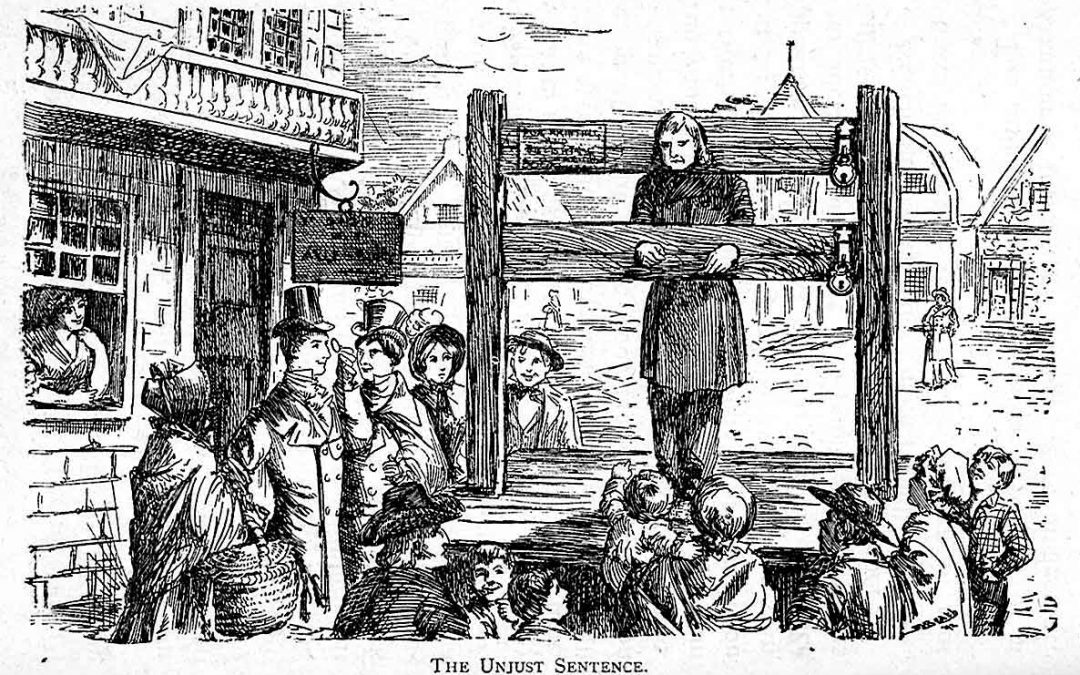
Salvation Through Reason: Did Thomas Teach It?
In 2016, I took an introduction to philosophy course at Midwestern Baptist Theological Seminary. It was a Master’s-level course, because at the time I was on track for an MDiv (that is, before I changed degree programs). At that time, it was being confidently asserted by faculty that Thomas Aquinas believed man could reason his way into God’s saving graces. Allegedly, Thomas believed that if a man was sharp enough to do so, he could hypothetically reason his way into the gospel, so to speak. I am not altogether certain where this characterization came from. Reading the first few pages of Thomas’ Summa Theologiae would give one an entirely different impression.
This post is a brief reader consisting of Thomas’ own words concerning the necessity of special revelation within the scheme of man’s redemption. Contrary to the caricature mentioned above, Thomas quite expressly believed Scripture is the principium of saving knowledge. Here are the relevant texts, complete with references.
Summa Theologiae
On the contrary, It is written (2 Tim 3:16): All Scripture inspired by God is useful for teaching, for reproving, for correcting, and for instructing in justice. Now Scripture, inspired by God, is no part of the philosophical disciplines, which were discovered by human reason. Therefore it is useful that besides the philosophical disciplines, there should be another science inspired by God. I answer that, It was necessary for man’s salvation that there should be a teaching revealed by God beyond the philosophical disciplines, which are investigated by human reason. First, indeed, because man is directed to God, as to an end that surpasses the grasp of his reason: The eye hath not seen, O God, besides Thee, what things Thou hast prepared for them that love Thee (Isa 64:4). But the end must first be known by men who are to direct their thoughts and actions to the end. Hence it was necessary for the salvation of man that certain truths which exceed human reason should be made known to him by divine revelation… It was therefore necessary that besides philosophical science built up by reason, there should be a sacred science learned through revelation (ST, I, Q. 1, Art. 1).
This is the very first response to the very first set of objections under Q. 1 of the Summa. It stands to reason, therefore, that those who repeat the caricature mentioned in our introduction have most likely never even picked up this primary resource on the matter.
So it is that sacred doctrine is a science because it proceeds from principles established by the light of a higher science, namely, the science of God and the blessed. Hence, just as the musician accepts on authority the principles taught him by the mathematician, so sacred science is established on principles revealed by God (ST, I, Q. 1, Art. 2).
Summa Contra Gentiles
And consequently, although human reason is unable to fully grasp things above reason, it nevertheless acquires much perfection if at least it hold things, in any way whatever, by faith (SCG, I, Ch. 5).
In the above quotation, we see a very clear distinction between reason and faith, reason being unable to attain unto that which comes to us by faith.
Now, though the aforesaid truth of the Christian faith surpasses the ability of human reason, nevertheless those things which are naturally instilled in human reason cannot be opposed to this truth (SCG, I, Ch. 7).
In other words, though special revelation takes us beyond where nature can take us, yet the two will never contradict one another. Though faith is suprarational, it is not irrational.
Commentary on Romans (CoR)
For true knowledge of God, by its very nature, leads men to good, but it is bound, as though held captive, by a love of wickedness through which, as the Psalm says, truths have vanished from among the sons of men (Ps 11:1)… First, therefore, he says: rightly do I say that they have suppressed the truth about God. For they did possess some true knowledge of God, because that which is known of God, i.e., what can be known about God by men through reason, is manifest in them, i.e., is manifest to them from something in them, i.e., from an inner light. (CoR, C. 1, L. 6, 1:16-20).
The above regards not the articles of faith necessary unto salvation, but the natural truths God reveals concerning Himself through nature. Thomas never suggests this knowledge, known through reason, is sufficient for salvation. The “inner light” is the habit/capacity by which man knows God through what is made. He goes on in the same place—
Here it should be noted that one man manifests something to another by unfolding his own thought by means of such external signs as vocal sounds or writing. But God manifests something to man in two ways: first, by endowing him with an inner light through which he knows: send out your light and your truth (Ps 43:3); second, by proposing external signs of his wisdom, namely, sensible creatures: he poured her out, namely, wisdom, over all his works (Sir 1:9).
In an earlier part of Lecture 6, he outlines the way in which salvation is conferred—
The second consideration is how the Gospel confers salvation, namely, through faith, which is indicated when he says, to everyone who believes. This happens in three ways. First, through preaching: preach the Gospel to every creature. He who believes and is baptized will be saved (Mark 16:15). Second, by confessing the faith: with the mouth confession is made unto salvation (Rom 10:10). Third, by the Scripture; hence even the written words of the Gospel have a saving power, as Barnabas cured the sick by placing the Gospel upon them.
Preaching of the gospel, confessing the faith (Rom. 10:10), the Scriptures themselves, e.g. as they are read, applied, etc. In other words, the gospel is transmitted via these means. But the more important point is that here, Thomas teaches the gospel is what confers salvation by or through faith. He does not believe reason apprehends the gospel, nor does he allow another way, other than the gospel, for the conference of salvation.
Commentary on Second Timothy (CoST)
For if you consider its principle, it has a special place above all writings, because others are given through human reason, while Sacred Scripture is divine. Therefore he says Scripture is inspired of God. For prophecy came not by the will of man at any time; but the holy men of God spoke, inspired by the Holy Spirit (2 Pet 1:21); the inspiration of the Almighty gives understanding (Job 32:8) (CoST, Ch. 3, L. 3, 3:12-17).
Catena Aurea (CA)
But we do not therefore believe him to have been born of the Virgin, because by no other means he could have truly lived in the flesh, and appeared among men; but because it is so written in the Scripture, which if we believe not we cannot either be Christians, or be saved (CA, Ch. 1, L. 1).
Commentary on Dionysius (CoD)
For Denys, in his doctrine, is supported by the authority of sacred scripture, which has strength and power according as the apostles and prophets were moved to speaking by the Holy Spirit revealing to them and speaking in them (CoD, Ch. 1, L. 1).
Here, Thomas shows something of his integrated theological method. His historical theology is informed by His exegetical theology. It seems to be the case Thomas lays the authority of Scripture as the foundation while inquiring of the thoughts of men.
Opuscula I – Treatises (OI)
First, as to the origin of the spiritual substances, Christian tradition teaches most firmly that all spiritual substances—like all other creatures—were made by God, and this is proved by the authority of the canonical Scriptures. For it is said in the Psalms: Praise him, all his angels, praise him, all his host (Ps 148:2). And after all the other creatures have been enumerated, it is added: For he spoke and they were made; he commanded and they were created (Ps 148:5) (OI, II, Ch. 18).
Notice how Thomas states the dogma of the tradition, but he looks to the Scripture the proof of the dogma. Again, he is informed by the authority of the “canonical Scriptures.”
Conclusion
This is by no means everything I could have compiled on this subject. Yet, it suffices to show how Thomas most certainly made a distinction between reason and faith, what can be known through nature and what can be known only through Scripture. Thomas, therefore, did not teach that man, through reason alone, could be saved.




